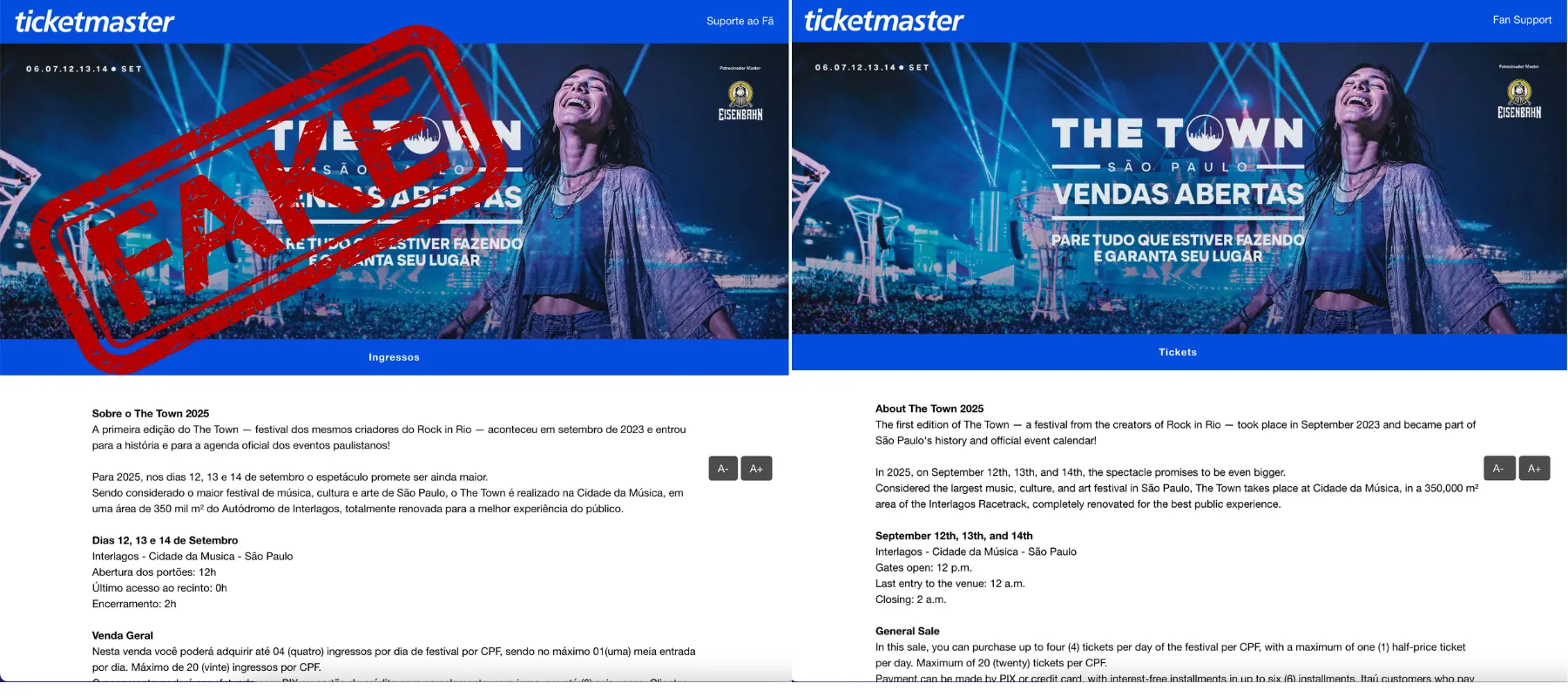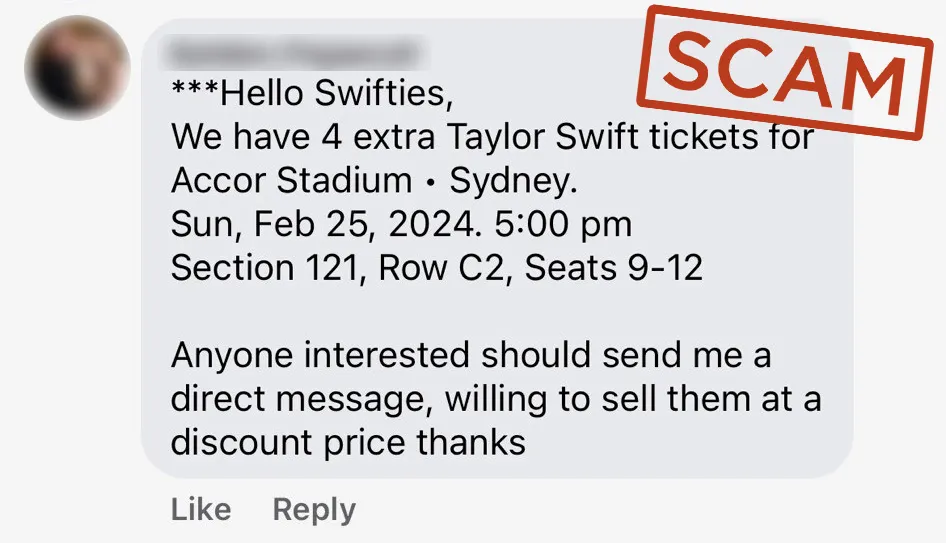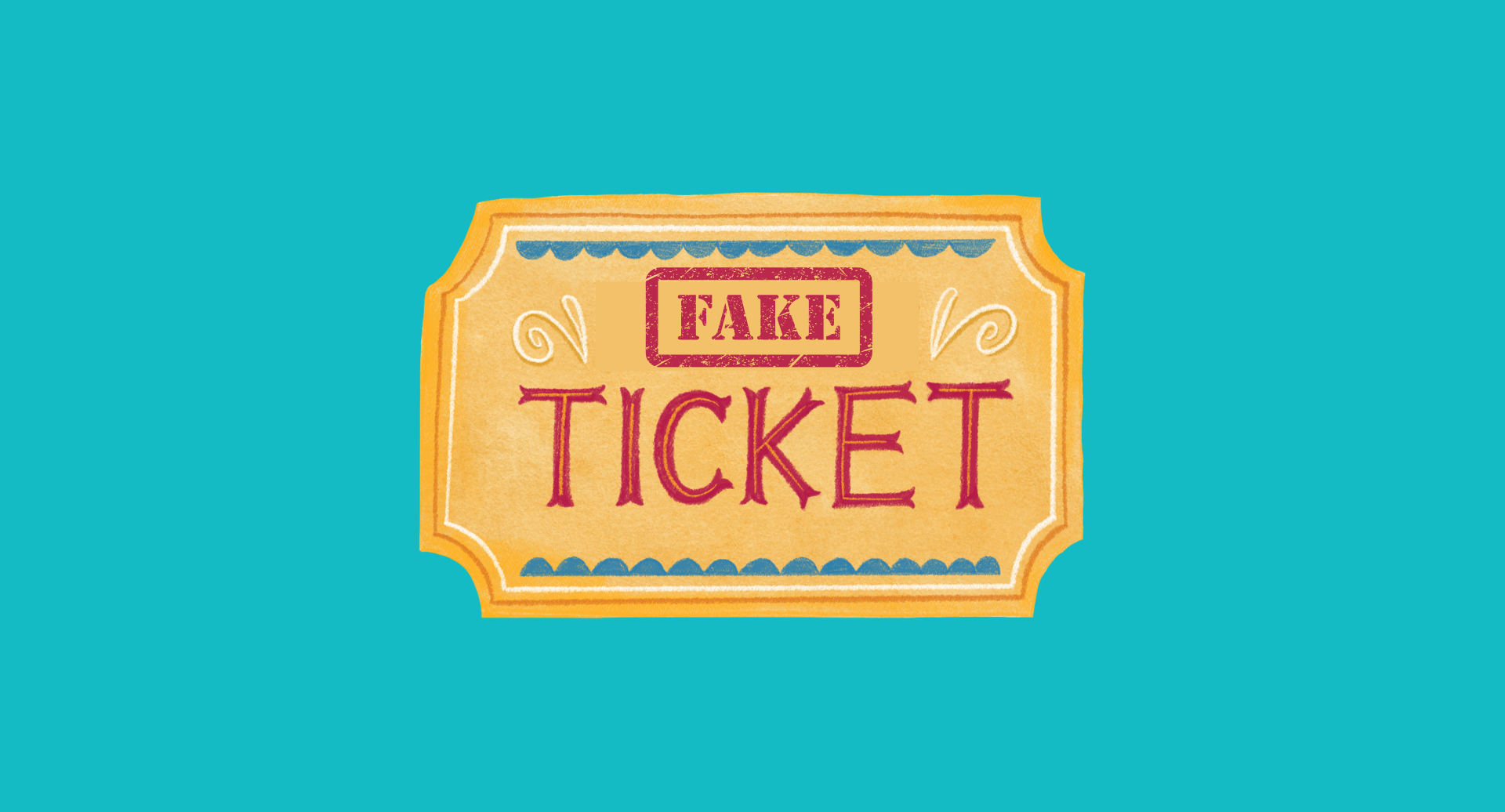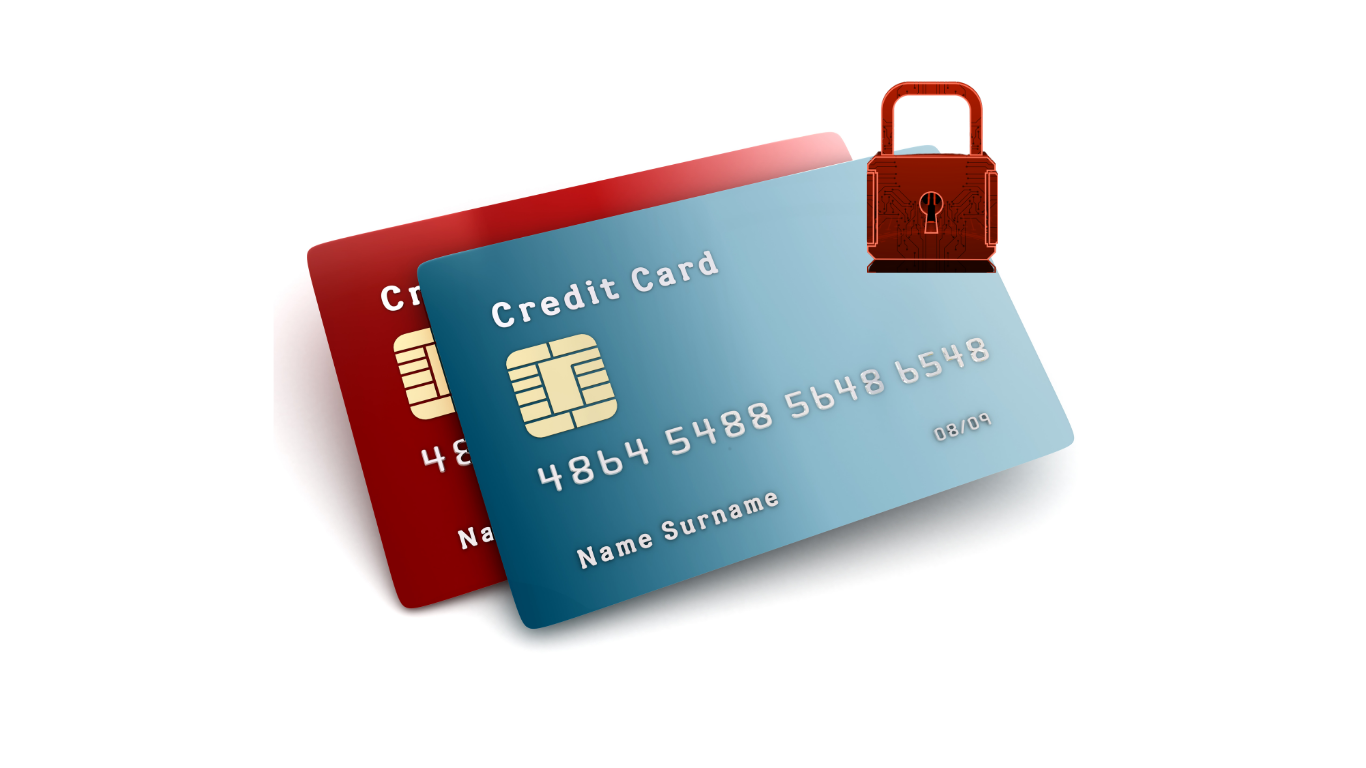With just a few clicks, you can secure your spot at your favorite artist’s concert or show instantly without having to wait in a queue! As convenient as it seems, digital ticketing has made life easier but also riskier. Because scammers never miss a chance, they exploit the excitement of fans and sell them tickets that don’t exist!
In this article, we’ll dive into how ticket scams work, how to spot them, and tips to protect yourself from falling into the trap.
How Ticket Scams Work
Scammers often use a variety of forms to steal fans’ money:
Reselling tickets at high prices: One common scam is when fraudsters buy many tickets and then resell them at much higher prices, making millions in profit.
Last month, the FTC took action against a Maryland-based ticket broker, Key Investment Group, which made millions by reselling tickets for many events at high prices, bypassing Ticketmaster’s purchase restrictions.
The company employed several strategies to get around Ticketmaster’s security measures, which are designed to prevent resellers from exceeding ticket purchase limits. These measures include monitoring whether purchases are linked to different credit cards, IP addresses, and verifiable Ticketmaster accounts. In some cases, Ticketmaster requires buyers to enter a verification code sent to their cell phone to complete the purchase.
The broker company bought at least 379,776 tickets from Ticketmaster in just over a year, spending nearly $57 million. They then resold many of those tickets on secondary marketplaces for around $64 million, often charging buyers a hefty markup [1].
Fake or non-existent tickets: Scammers may also sell fake or nonexistent tickets, often through phishing websites that look identical to popular ticket-selling platforms, or on marketplaces and social media.
According to a recent report by Carousell, a leading classifieds marketplace in Southeast Asia, Hong Kong, and Taiwan, fake ticket scams are among the most common methods by which online shoppers are targeted. This problem is especially widespread in Hong Kong and Singapore [2].
On one occasion, a woman sold fake tickets for Taylor Swift’s The Eras Tour in Singapore, scamming more than 70 fans out of over $110,000. After collecting payments, she either sent fake tickets or didn’t deliver anything at all. She exploited the fact that these concerts were sold out and in huge demand, which made buyers more willing to trust her offers. She was later sentenced to 36 months in jail [3].
Football fans are another frequent target. According to new Lloyds Bank data, football ticket fraud has cost an estimated £2.5 million (~ $3.3 million) in losses over the last two years (2023–2024), with 76% of these scams originating from social media. Fraudsters often post fake listings for high-demand matches, persuading buyers to transfer money directly, typically via bank transfer, for tickets that don’t exist. Younger buyers are most at risk: 28% of victims are aged 25–34, followed closely by 26% aged 18–24. Once the money is sent, victims never hear from the seller again [4].
Spotting Ticket Scams
Before buying a ticket online, pay attention to these red flags [5][6]:
- Too-good-to-be-true prices: Scammers often exploit high-demand events by offering suspiciously cheap tickets, but they frequently turn out to be fake or don’t exist at all.
- Sellers pushing for urgent payment: Fraudsters often pressure buyers to act fast. Once payment is made, they vanish.
- No option to pay securely with a credit/debit card: Scammers might ask for payment via gift cards, bank transfers, peer-to-peer apps (Zelle, Venmo, PayPal Friends & Family), or cryptocurrency, all of which lack buyer protection.
- Unfamiliar websites with spelling errors or poor design: Fake sites can look legitimate at first glance. Watch for misspellings, blurry images, or inconsistent design when compared to the real thing. However, many modern fake websites created using AI tools often look high quality and are free of misspellings, etc. Fig. 1 shows an example of a sophisticated Ticketmaster phishing website detected by the Eydle tool.

- Buying tickets on social media: Fraudsters commonly post bogus listings on platforms like Facebook Marketplace or groups, or on Instagram, or they send you a DM offering tickets at an attractive price. In Fig. 2, the scammer is offering fake tickets for a popular singer’s concert through DMs.

How to Protect Yourself From Being a Victim of a Ticket Scam
- Be skeptical: Don’t rush when you are offered tickets for high-demand events. Stop, think, and verify the offer before buying. Be especially cautious with tickets for sold-out concerts or popular sports matches. Only buy from someone you know personally, like a friend, relative, or coworker.
- Stick to trusted sources: Buy tickets only from official club websites, ticket offices, or authorized partners. Avoid deals advertised on social media. If using sites like Ticketmaster or StubHub, double-check the URL to make sure it’s legitimate and not a scam website.
- Pay safely: Always pay through the official platform using the recommended methods. Never pay with peer-to-peer apps (Zelle, Venmo, PayPal Friends & Family, CashApp) or via bank transfer or cryptocurrency unless you personally know the seller. These methods offer no buyer protection. Also, check a seating chart to confirm that the section and seat numbers actually exist.
About Eydle
As scams and impersonation threats continue to rise, safeguarding your personal and business reputation has never been more important. Eydle’s software platform empowers you to take full control of your digital identity and protects you from such scams.
Using advanced AI, Eydle identifies and blocks phishing scams across social media. Our technology scans social media profiles, direct messages, websites, app stores, and even the dark web to detect and thwart phishing attempts before they can target you or your customers.
To learn more, visit www.eydle.com or contact us at [email protected].
Sources
- https://www.ftc.gov/news-events/news/press-releases/2025/08/ftc-takes-action-against-ticket-resellers-using-illegal-tactics-bypass-ticket-limit-protections
- https://press.carousell.com/2025/07/30/scammers-playbook-revealed-carousells-2024-report-details-top-5-online-scams-and-proactive-blocking-of-over-1-28-million-links/
- https://www.straitstimes.com/singapore/courts-crime/taylor-swift-concert-ticket-scam-woman-jailed-36-months-over-cheating-victims-of-more-than-110k
- https://www.lloydsbankinggroup.com/media/press-releases/2025/lloyds-bank-2025/football-ticket-scams.html
- https://www.lloydsbank.com/help-guidance/protecting-yourself-from-fraud/ticket-scams.html
- https://www.aarp.org/money/scams-fraud/avoid-fake-sports-concert-tickets/




